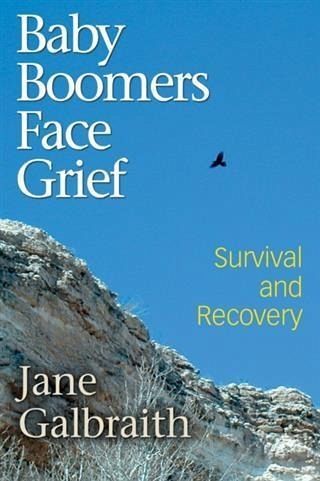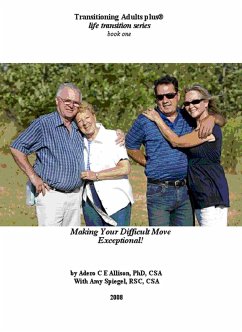
Baby Boomers Face Grief - Survival and Recovery (eBook, ePUB)

PAYBACK Punkte
6 °P sammeln!
Ninety million Baby Boomers will, in the next 20 years, face the loss of one or both parents. This book discusses society's lack of acceptance of grief in general and the way past generations have taught us to deal with this life event. "Time will heal.", "They had a good life" are some examples of empty phrases so often used when dealing with loss. The reader is taken on a journey in this book by providing support and understanding of the grieving process. In this writer's opinion this generation, known as the Baby Boomers, through the sheer force of their numbers, has the ability to make pos...
Ninety million Baby Boomers will, in the next 20 years, face the loss of one or both parents. This book discusses society's lack of acceptance of grief in general and the way past generations have taught us to deal with this life event. "Time will heal.", "They had a good life" are some examples of empty phrases so often used when dealing with loss. The reader is taken on a journey in this book by providing support and understanding of the grieving process. In this writer's opinion this generation, known as the Baby Boomers, through the sheer force of their numbers, has the ability to make positive changes in the way this and succeeding generations handle grief. In every situation the amount of grief that is felt is in direct proportion to the relationship that the person had with the one who died. It cannot be assumed that the loss of a cousin for example has less affect than of a sister or a friend. It is the relationship that affects the grief process. The main issue for many people experiencing grief is that their grief is not recognized or validated by even close friends. As a society we tend to give people a very short time frame to "get on with life" or achieve closure (which never really occurs). What is misunderstood by most is that grief is a process and does not have a start and end date. People need to be able to express their feelings in whatever way they choose to allow them to navigate through this process in a healthy way. This book validates the grief experience. The workplace is no different in this regard. Employers will have to start to understand they do not have the same employee back when they return from a bereavement leave of a significant person in their life. Grief affects not just our emotions but cognitive and physical functions as well that can have a negative impact on their work performance. Employers that understand they might see these effects many months after the death can put in place strategies to support their employees as well as decrease the lost productivity that is sure to occur. The grieving process is explained; how it differs for all of us; that there is no "right" way to grieve and that the pain of grieving cannot be avoided. Suggestions are offered for managing grief. Ceremonies and rituals surround death and grieving is discussed and suggestions about how to structure a meaningful ceremony to honour loved ones are given. The book makes it clear that change can occur in our society, with this generation, that will allow people to manage grief in a constructive way; that sharing experience can allow others to be more prepared and more open in dealing with this life altering experience and that people can find comfort in knowing that others have had similar experiences. This book allows a glimpse into what we will all face and some strategies to cope with our loss, in an easy to read, personal narrative format.
Dieser Download kann aus rechtlichen Gründen nur mit Rechnungsadresse in A, B, BG, CY, CZ, D, DK, EW, E, FIN, F, GR, HR, H, IRL, I, LT, L, LR, M, NL, PL, P, R, S, SLO, SK ausgeliefert werden.













